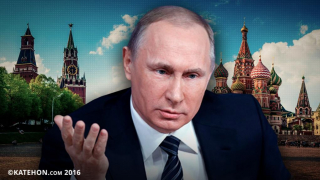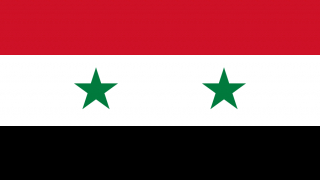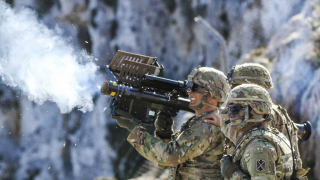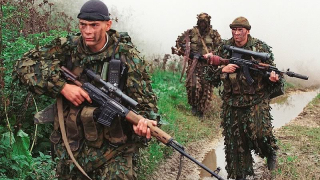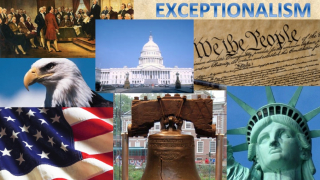Through the Dim Glass
When discussing the merits of a political figure in relationship to his command of a nation-state's armed forces, I am reminded of a precise commentary by Clausewitz who stated, “From the simple narration of a historical event which merely places things one by the side of the other and at most touches on their most immediate causal connections, we distinguish the critical narration”.
Where Timothy Thomas, the senior analyst at the Foreign Military Studies Office at Ft. Leavenworth, KS., fails in his assessment of Russia’s military reforms and its geopolitics is that he falls short in creating a deep historical discovery of the Russian Armed Forces' roots extending to the time of Alexander Nevsky.
Nor was the tactician able to offer criticism of points he put forth regarding, for instance, the observation of Putin’s leadership in relation to the Russian Armed Forces.
Furthermore, Timothy Thomas only touches slightly upon why the Russian Army has now become a modern military force to be reckoned with in the world. The American military analyst’s only methodology is to refer back to the demise of the Soviet Union, bypassing the historical achievements of Stavka that have contributed to the theory of war not only within the confines of Russia, but throughout the world. Finally, Mr. Thomas does not give us, the reader and students of military history and military theory, those various testing means of his theory which were lacking in the first place, which Clausewitz calls criticism investigation proper.
So, when he discusses the leadership of Vladimir Putin at the very beginning of his book, Timothy Thomas fails to give us a serious analysis of the Russian leader’s class background, formal education, or a detailed record regarding his practical work in KGB in counter-intelligence, as First Chief Directorate in Leningrad, and how Putin worked in East Germany (DDR). There are other ‘habits’ of President Putin that could be viewed with both “praise and blame” to use Clausewitz’s term when describing such a serious analysis of such a contemporary leader, who at this stage of world history, has no challenger, as yet. Moreover, the American senior analyst of Foreign Military Studies gives us no theory to apply to a history of the Russian Armed Forces in this era.
In passing, I will attempt to give my observational impression of Putin as a leader of Russia’s military forces, while passing over other political issues in silence, for as we know, all life of a nation-state is political in nature, the military forces being a part of that organic whole of the state apparatus. I am reminded of one particularly memorable diplomatic instance, when President Putin gave Benjamin "Bibi" Netanyahu, the prime minister of Israel, a copy of the great work called The Jewish War written by Titus Flavius Josephus, who was of Jewish birth. In that profound work of Roman history, Josephus explains in detail the failure of the Jewish leadership and their people to take seriously the need of the Roman leaders for a division of religious views in Rome which could verge on the extreme coupled with the practical, values of the Roman political aspirations.
I wonder what signal Netanyahu got from the message of receiving such ‘a gift’.
Putin, with all his own personal and political contradictions, understands multiple subtleties and nuances and subtext, the patience and implementation of military power as a political act by another means.
In the historical epoch we are now living through, the anxious quest for world hegemony by the various American regimes has forced the Russian state into a precarious position. With this in mind, let us understand the complexities and contradiction President Putin finds himself in during this critical juncture of history, where war is a fact and not a theory. President Putin has demonstration to an efficient degree that the usage of military force in an economic way in Syria with the Russian Armed Forces has been achieved, by learning from his earlier incursions into Georgia to support the peoples of South Ossetia and Abkhazia.
I sensed and then read in depth about the cumbersome circumstances at the line of demarcation where certain Russian armored units and other military vehicles were crossing into Georgia’s border. To me, it seemed an insufficiency of details on planning regarding the operation. I questioned the professionalism of the post-Soviet Russian army, although I did understand the need to support those break-away regions in their struggle of self-autonomy. I also felt that the Russian people and the Russian Government had the right to retain again the Crimea, since Khrushchev, as First Secretary of the Communist Party, had ‘bequeathed’ Crimea to the government of Ukraine illegally, not even allowing for a referendum to be called in Crimea for such an exit from Russian proper.
Therefore, I do not think Putin intended any ill will to the Crimean people, but in fact, ironically enough, giving their right for independence and self-autonomy, within the Russian Federation. It is well documented how Putin was critical of Lenin’s thesis for independence and self-autonomy for national ethnic peoples which surrounded Russia. Lenin, however was a practical revolutionary and not a nationalist leader. He was pragmatic about independence and self-determination for those groups of peoples he needed as allies for his deeper revolutionary ambitions, which I, as a communist support, since I am a colonized citizen of the United States.
As for the Donbass region, during his lifetime, Lenin was aware of the long-standing reactionary forces in Kiev, and again, he was very tactical, one can even say militarily practical, in allowing the Donbass region to stay within the confines of the Ukraine, as he knew those people in Eastern Ukraine were hard-working people and socialistic in their body politics. Putin, again ironically, has a choice to allow those great people in the Eastern Donbass region to be given their independence in political and social terms or to defend them against the fascist junta in Kiev.
If Putin supports the workers and their families in the Donbass region, then he is bringing forth the direct political aspirations Lenin wanted all along not only for the Donbass, but also for the liquidation of a Kiev inspired by Western slothfulness and capitalist fetters.
Putin’s possibilities to some extent mirror the modern sophistication of the Russian Armed Forces. But it remains to be seen how the Great Russian Army will react against larger forces unlike Daesh or ISIS, and if they are capable of taking military objectives even with great loss of life. An army cannot just sacrifice itself for nationalist causes, but must be nourished by deep moral and political values articulating the needs and aspirations of a people and not the opportunism or grand, ambitious illusions of one man. Here, in the United States, we have too many roads of political opportunism and national unwariness, both of a political and military nature.




